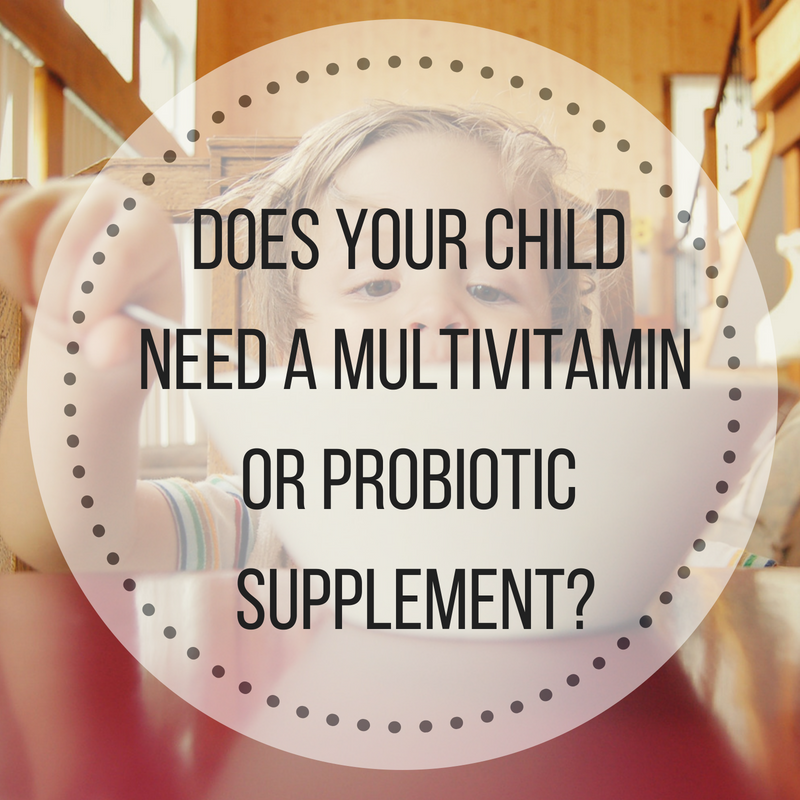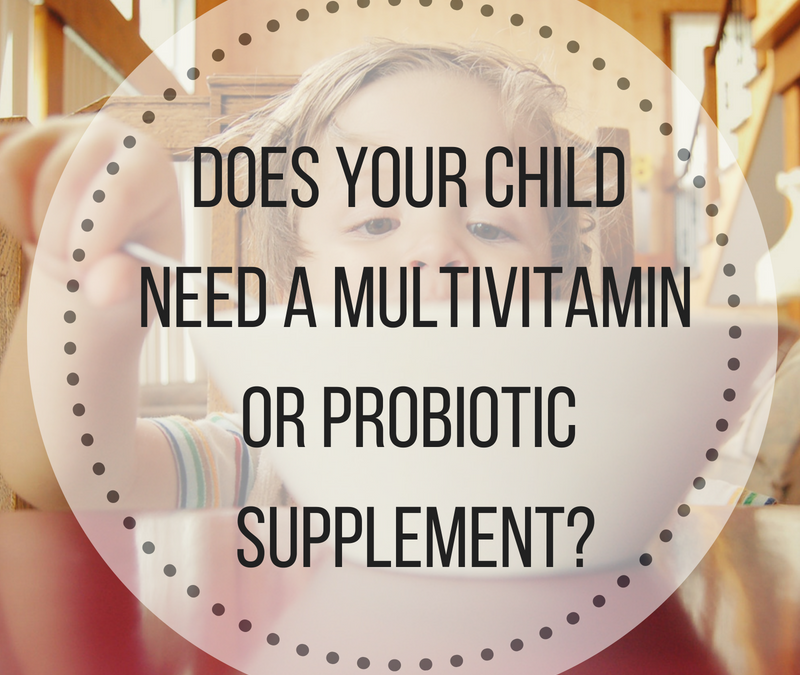Vitamins for Kids, Do They Need Them?

Easy Instant Pot BBQ Pulled Chicken
August 8, 2018
Table of Four!
August 23, 2018Laying out the facts to help you decide if your child needs to a Multivitamin or Probiotic Supplement.
I recently wrote an article for Baystateparent magazine on the subject and thought this topic would be great to share here on the blog as well! Because let’s be honest this is a topic a lot of us parents struggle with. Does our child really need a multivitamin to get the nutrients their body needs? Does taking a probiotic really benefit my child’s health?
It’s important that our children get the appropriate vitamins for proper growth and development. In most cases children are able to get the vitamins their bodies need by consuming a variety of foods in each food group. Fruits, vegetables, whole grains, dairy products and animal and vegetable proteins are examples of vitamin-rich foods. Offering a balance of these foods in your child’s diet will help to ensure that they are getting the nutrients their body needs. In some cases, children either choose or are unable to eat a variety of foods and may be lacking in certain vitamins.
Here are some examples of when a multivitamin might be needed:
- Refusing to eat foods in a specific food group
- Unable to eat certain foods in a food group due to allergies or cultural reasons
- Eat a very small amount or limited variety within a food group or groups
For any of these reasons a multivitamin supplement would be appropriate. As a reminder, multivitamins are supplementing your child’s diet. They are not a replacement for foods themselves. It’s still important to continue to offer food your child may be choosing not to eat or find alternatives to foods they may be unable to eat.
So, what are the best multivitamins out there? The answer is what works best for your child. Start by trying chewable vitamins with no artificial dyes or added sugar. There are also some that come in liquid form and powdered form, which you could add to beverages, smoothies or other liquids like yogurt or oatmeal. The trick is to get them to consume everything that is provided, which can be difficult especially if they are already picky eaters. If none of these work, a gummy vitamin is often well tolerated. For more specific recommendations reach out to a pediatric dietitian, like myself. Not only can we assess if your child needs supplementation and what vitamin supplement would be appropriate, they can also help you find an approach that works to get your child to eat a balance of nutrients to support their development.
Unlike vitamins, probiotics are not essential for your child’s growth and development. Probiotics are live bacteria and yeasts found naturally in the body and in certain foods. They help facilitate digestion and absorption of nutrients and optimize our body’s immune system. The research in the area of probiotic supplementation in children and adults is still preliminary and long-term effects of probiotic use in children are uncertain. Therefore, my recommendation is to find ways to incorporate probiotic-rich foods into your child’s diet. Some food sources of probiotics include yogurt, kefir, sauerkraut or other fermented vegetable, tempeh, kimchi and miso. Not only are kids getting a dose of potentially helpful probiotics but these foods are also providing other nutrients their bodies need for growth and development.




